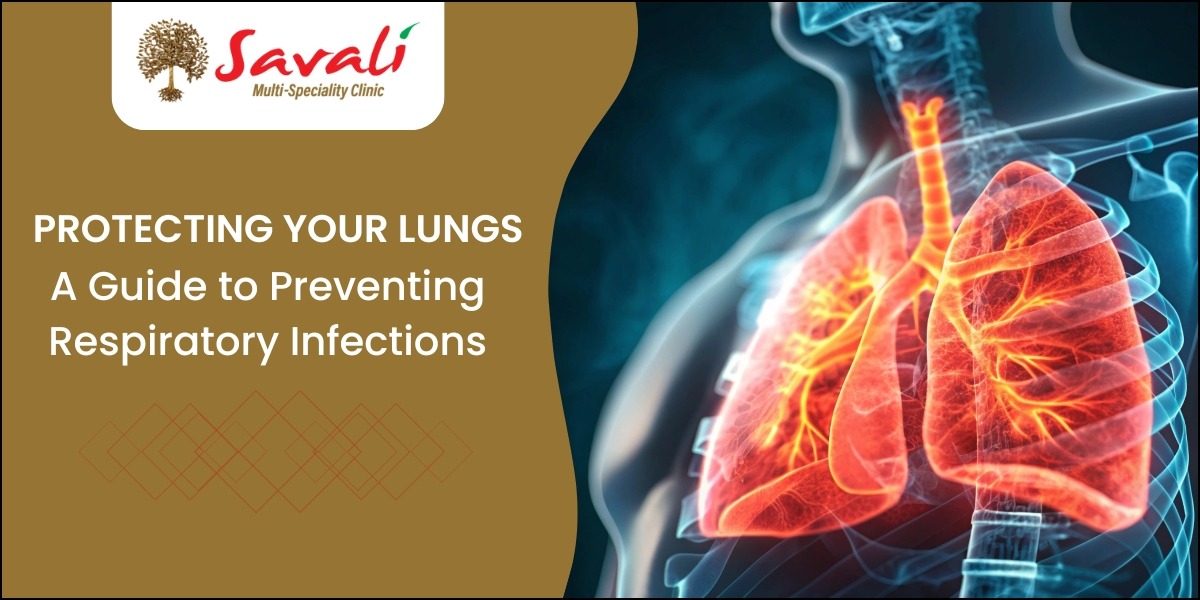Our lungs are vital to our health and well-being, working tirelessly to supply our bodies with oxygen. However, they are constantly exposed to germs, pollutants, and viruses that can cause infections like the common cold, influenza, bronchitis, and pneumonia. Protecting your respiratory health is more important than ever.
The good news is that many respiratory infections are preventable. By adopting a few key habits, you can significantly strengthen your defenses and keep your lungs healthy.
Key Strategies for Lung Health
-
Prioritize Hand Hygiene: Wash your hands frequently with soap and water for at least 20 seconds, especially after being in public places. If soap isn’t available, use an alcohol-based hand sanitizer. This is the single most effective way to stop the spread of germs.
-
Get Vaccinated: Vaccines are a powerful shield. The annual flu shot protects against the most common influenza viruses each season. The pneumonia vaccine is recommended for older adults and those with certain chronic conditions. Staying up-to-date with vaccinations, including COVID-19 boosters, is crucial.
-
Don’t Smoke and Avoid Secondhand Smoke: Smoking damages your lungs’ natural defenses and is the leading cause of lung cancer and COPD (Chronic Obstructive Pulmonary Disease). Avoiding secondhand smoke is equally important for maintaining healthy lung function.
-
Boost Your Immune System: A healthy body fights off infection more effectively. Ensure you get adequate sleep, manage stress, exercise regularly, and eat a balanced diet rich in fruits, vegetables, and whole grains to provide your immune system with the nutrients it needs.
-
Practice Respiratory Etiquette: Always cover your mouth and nose with a tissue or your elbow when you cough or sneeze. This prevents your germs from becoming airborne and infecting others.
-
Stay Hydrated: Drinking plenty of water helps keep the mucosal linings in your lungs thin. This thinner lining is better at trapping and expelling viruses and irritants before they can cause an infection.
When to See a Doctor
While prevention is key, it’s essential to seek professional medical advice if you experience persistent symptoms like a prolonged cough, shortness of breath, chest pain, or a high fever. Early diagnosis and treatment can prevent complications.
If you are searching for a pulmonologist in Hadapsar, best chest physician in Hadapsar Consult Dr. Laxmikant Kawtekwar at Savali Multispeciality Clinic. Schedule your appointment today and take a deep breath towards better health.
Frequently Asked Questions (FAQs)
1. What are the first signs of a respiratory infection?
Early signs often include a runny nose, sore throat, cough, sneezing, and mild body aches.
2. How can I clean my lungs naturally?
While you can’t “clean” lungs like a filter, you can support their health by not smoking, exercising to improve lung capacity, staying hydrated, and avoiding air pollution.
3. What foods help fight respiratory infection?
Foods rich in Vitamin C (oranges, bell peppers), Vitamin D (fortified milk, fatty fish), zinc (nuts, seeds), and antioxidants (berries, leafy greens) boost immunity.
4. How long does a respiratory infection last?
A common cold typically lasts 7-10 days. More severe infections like bronchitis can last for several weeks. See a doctor if symptoms persist.
5. Is steam good for your lungs?
Inhaling steam can help moisten airways and loosen mucus, providing temporary relief from congestion and a cough.

